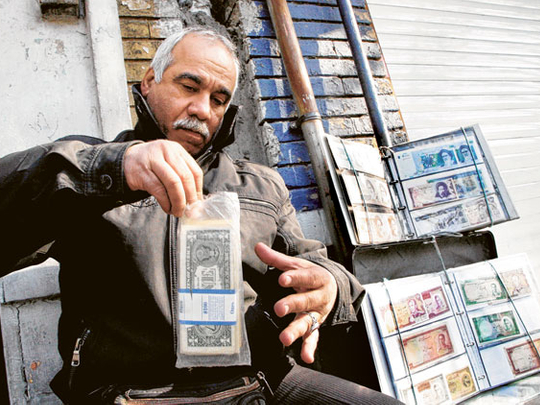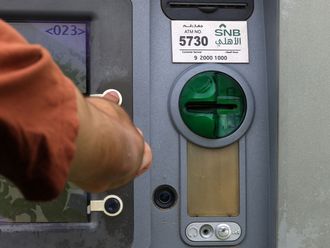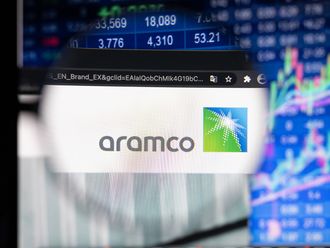
Dubai: Economic sanctions imposed on Iran have begun to bite as the value of its currency is collapsing, Iranian businessmen have told Gulf News.
An Iranian official on Tuesday told its national radio that the Islamic Republic imposed a ban on imports from the UAE — which the government later denied.
But nonetheless Iranian traders in Dubai have reported a 40 per cent decline in transactions due to the tougher sanctions.
"Trade between Iran and Dubai, a key source of imports for the Islamic Republic, is being squeezed due to sanctions over Iran's nuclear programme," said Hamid Reza, Chairman of Iranian Business Council in Dubai. "I can't estimate the loss in value of trade."
The UAE is one of Iran's biggest trading partners and the largest source of commodities that are essential to support its economy.
But Reza said that the increasing isolation has been difficult.
"We can't deny that Iranian businessmen, who feel unfairly targeted by the West, are facing serious obstacles," he said.
"The UAE tries to walk a fine line between satisfying its Western allies and accommodating its neighbour, Iran."
However, it has begun cracking down as relations between Iran and the Gulf Arab states grow more strained.
"You've seen changes in attitude among bankers towards the Iranian trader," he said.
The UAE has also tightened customs inspections on goods destined for Iranian ports, he said.
"Customs authorities over the past few months have adopted a new system to check every shipment that passes via the Emirates to Iran. Due to this, there are delays in the cargo shipments which add to losses."
Some banks are freezing accounts and blacklisting Iranian companies.
"Today it is very hard to open a bank account for a UAE-based Iranian-owned company that has business with Iran. An Abu Dhabi-based bank called me to say sorry — we have to close your account," said another trader, requesting anonymity.
"This makes it difficult for other banks to open personal accounts for Iranian businessmen. I have reduced my business between the UAE and Iran to the minimum level."
Another Iranian businessman said the number of Iranian-owned businesses in Dubai is falling because of the effect of the financial crisis and sanctions.
"Iranians in Dubai are starting to feel that pinch in a sharp drop in remittances. No one wants to be associated with Iranians because it can raise a red flag and people don't want to be investigated," he said.
"Iranian businesses operating in Dubai and serving the Iranian market by routing business from Europe through Dubai are finding it difficult to get trade finance instruments such as letters of credit and guarantees. With the new round of sanctions, doing business [with companies] owned by Iranians will be harder."
Iran is the UAE's second-largest re-export market, accounting for about 17 per cent of the volume, while the UAE is one of Iran's top sources of imports, accounting for more than 15 per cent.
The value of direct exports between Dubai and Iran is Dh1.8 billion while re-exports stand at Dh24 billion, according to the latest statistics compiled by Dubai Exports.
Gold and lubricating oil feature high on the list of exports while rice, textiles and motor parts and accessories have topped the list of re-exports between the two countries.
Trade between Iran and Dubai has been strong since the early 20th century, when Iranian traders migrated from towns in southern Iran to the emirate.












